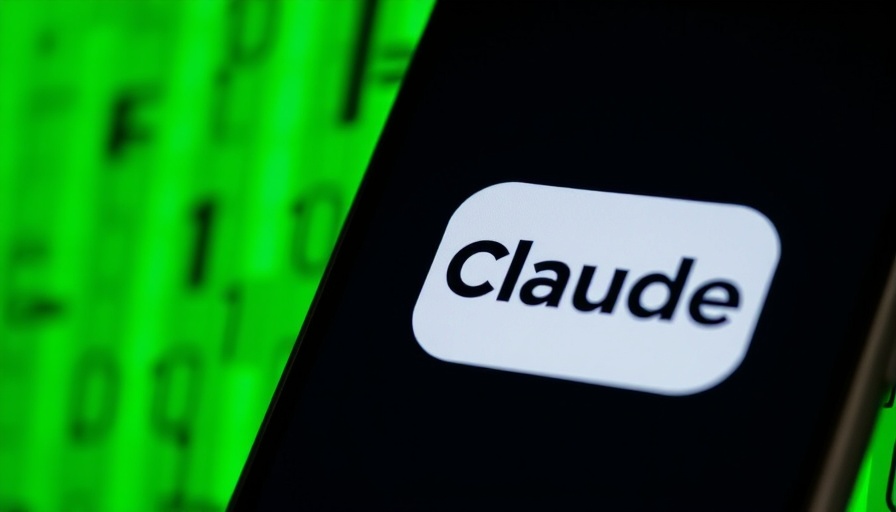
Claude AI Joins the Battle for Search Relevance
In an era of widespread digital information and an ever-increasing demand for fast answers, Anthropic's Claude AI has finally joined the fray by introducing web search capabilities within its chatbot. As this technology continues to evolve, the implications for users and the market are profound.
How Claude AI Enhances Search Experience
Anthropic's recent announcement opens the door to an advanced way for users to interact with Claude. Similar to competitors like OpenAI's ChatGPT, Claude now integrates real-time web search directly into its responses. By providing inline citations, Claude ensures that users can verify information efficiently; this makes the experience not only user-friendly but also more trustworthy. This enhancement is particularly crucial as misinformation proliferates online, requiring tools that can sift through data intelligently.
The Competitive Landscape of AI Search Tools
Anthropic’s integration of web search places Claude in a competitive yet fragmented market. While Claude’s update is significant, it puts into perspective how platforms like Google maintain their lead due to comprehensive search features developed over decades. However, AI chatbots are quickly gaining traction, offering conversational interfaces that some users may prefer over more traditional search methods.
Emerging Trends and the Future of AI Tools
The integration of web search capabilities in chatbots points to a growing trend where conversational AI can handle real-time information needs. This transition also reflects broader expectations for immediate answers that can adapt to current events and queries beyond static databases. As this technology matures, we can anticipate significant advancements in personalization, making chatbot interactions even more intuitive and responsive.
What This Means for Current and Future Users
For users who access Claude's capabilities in the U.S., the change represents an exciting development. The ability to toggle web search enhances the model's utility, providing answers based on more contemporary information rather than relying solely on the pretrained dataset that cuts off knowledge in November 2024. This capability not only empowers users with immediate insights but also tracks how emerging AIs can engage users in meaningful exchanges.
Understanding the Broader Implications
The increase in AI's ability to conduct web searches also raises numerous questions surrounding privacy, ethical use, and the ongoing battle for internet authority. As companies like Anthropic and OpenAI continue to innovate, the balance of power in information dissemination is at stake. Understanding the nuances of how these tools operate will become critical for users navigating an increasingly digital world.
Final Thoughts and Next Steps
With Claude's new feature rolling out to paid users and the promise of expansion to free users, now is the ideal time for tech enthusiasts to explore these advancements directly. Leveraging AI capabilities can enhance research and productivity significantly. For those interested, simply visiting the settings in Claude allows them to access the web search toggle and experience this innovation firsthand.
In a rapidly evolving digital landscape, staying informed of innovations like Claude AI will equip readers with effective tools to manage their information needs. As virtual tools become even more integrated into daily routines, the demand for interactive, reliable AI represents not just a trend but an essential shift in how we seek information. Are you ready to experience these changes?
 Add Row
Add Row  Add
Add 




 Add Row
Add Row  Add
Add 

Write A Comment